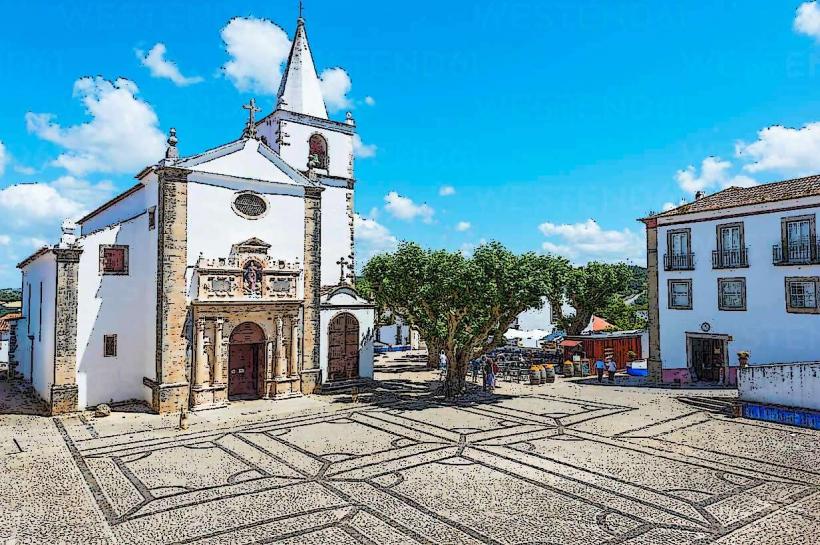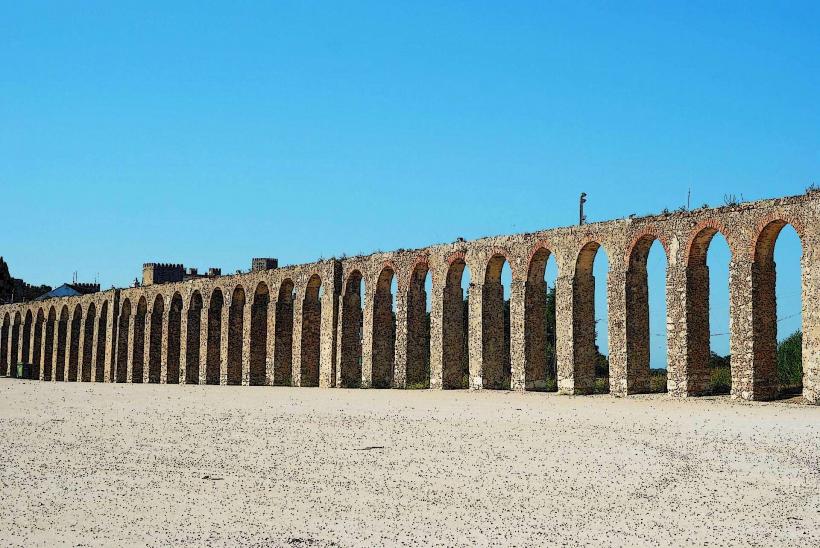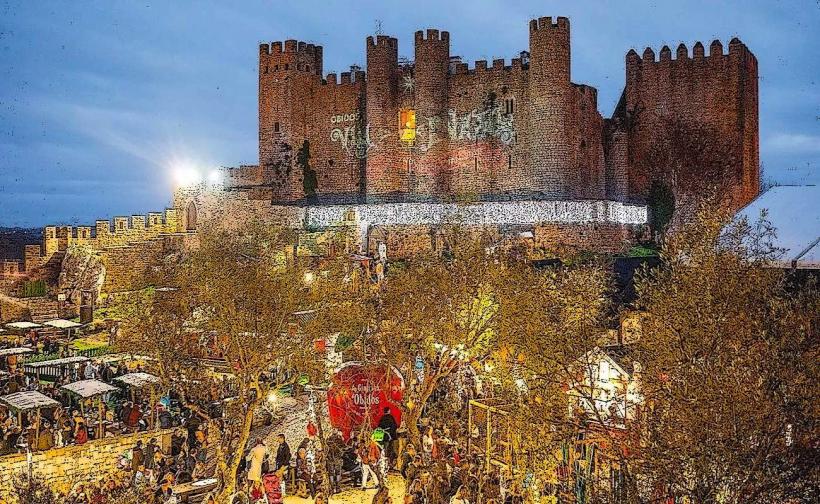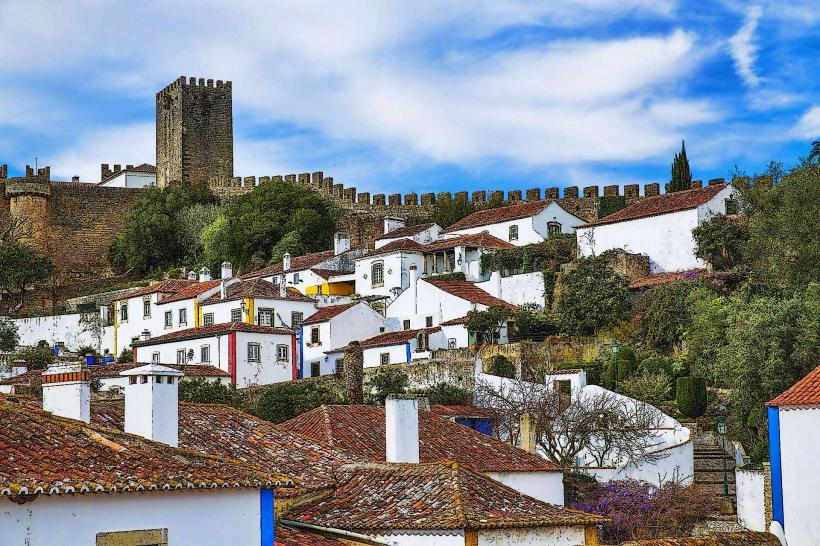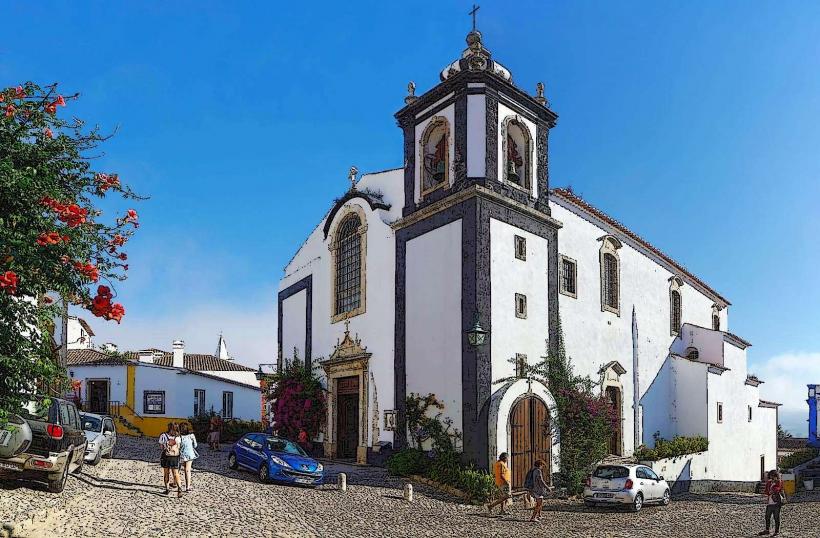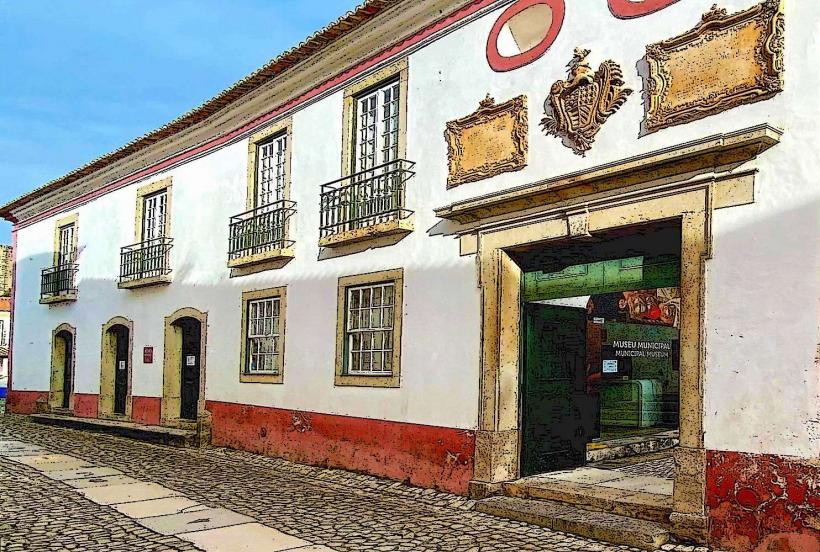Information
Landmark: Porta da VilaCity: Obidos
Country: Portugal
Continent: Europe
Porta da Vila, Obidos, Portugal, Europe
Porta da Vila is one of the most iconic and historic landmarks in Óbidos, Portugal. It is a beautifully preserved archway that serves as one of the main entrances to the medieval town, and it holds great cultural and architectural significance.
1. Historical Background
- Origin: Porta da Vila dates back to the 14th century and is part of the town's medieval defensive walls, which were built to protect the town from external threats. The archway was a key entry point for the town, allowing for controlled access through the fortified walls.
- Restorations: Over the centuries, the structure has undergone various repairs and restorations, with significant work done to maintain its integrity. Despite this, it retains much of its original medieval charm.
2. Architectural Features
- Design: The Porta da Vila is a gatehouse with an arched opening, typical of medieval fortifications. The archway is a relatively simple yet elegant design, with stone walls and decorative elements that highlight its historical and defensive purpose.
- Mannerist Influence: The design of the gate reflects some Mannerist architectural influences, particularly in its decorative details. The gate features a baroque-style altar above the arch, dedicated to Our Lady of Piety (Nossa Senhora da Piedade). This altar was added in the 18th century, reflecting the religious significance of the gate in the local community.
- Defensive Structure: Like many medieval gates, Porta da Vila was designed for defense, featuring thick stone walls that could withstand attacks. The gate was part of a larger system of fortifications around the town, including watchtowers and other defensive structures.
3. Religious Significance
- The altar above the gate, dedicated to Our Lady of Piety, underscores the religious importance of the gate and its role in the spiritual life of the town. In medieval times, gates like Porta da Vila were not only defensive structures but also places of pilgrimage and religious reverence.
- Our Lady of Piety is a patron saint for protection and guidance, reflecting the town’s dependence on faith for its security and well-being.
4. Symbolism and Cultural Importance
- Porta da Vila is more than just a physical structure; it symbolizes the historical and cultural continuity of Óbidos. It serves as a reminder of the town's medieval past, its strategic importance, and its enduring traditions. The gate is also symbolic of the transition from the outside world to the more intimate, historically preserved heart of the town, which is contained within its fortified walls.
- As a historical site, it forms part of the Óbidos Historic Center, which is a UNESCO World Heritage Site. Its preservation adds to the overall charm and historical richness of the town.
5. Tourist Attraction
- Porta da Vila is a popular point of entry for visitors exploring Óbidos, and it is one of the first landmarks seen when entering the town. Its stunning architecture and serene surroundings make it an ideal spot for photography, particularly when viewed with the town's medieval walls and narrow streets.
- The gate is often included in guided tours of the town, which delve into the medieval history of Óbidos, its fortified walls, and its importance as a former royal town.
6. Conclusion
- Porta da Vila stands as an important historical, architectural, and religious monument in Óbidos. It embodies the medieval spirit of the town while also highlighting the cultural fusion that has occurred over the centuries, including Mannerist and Baroque influences. Whether you are a history enthusiast, a lover of architecture, or simply someone visiting the picturesque town of Óbidos, Porta da Vila is a must-see landmark that offers a glimpse into Portugal’s rich past.

